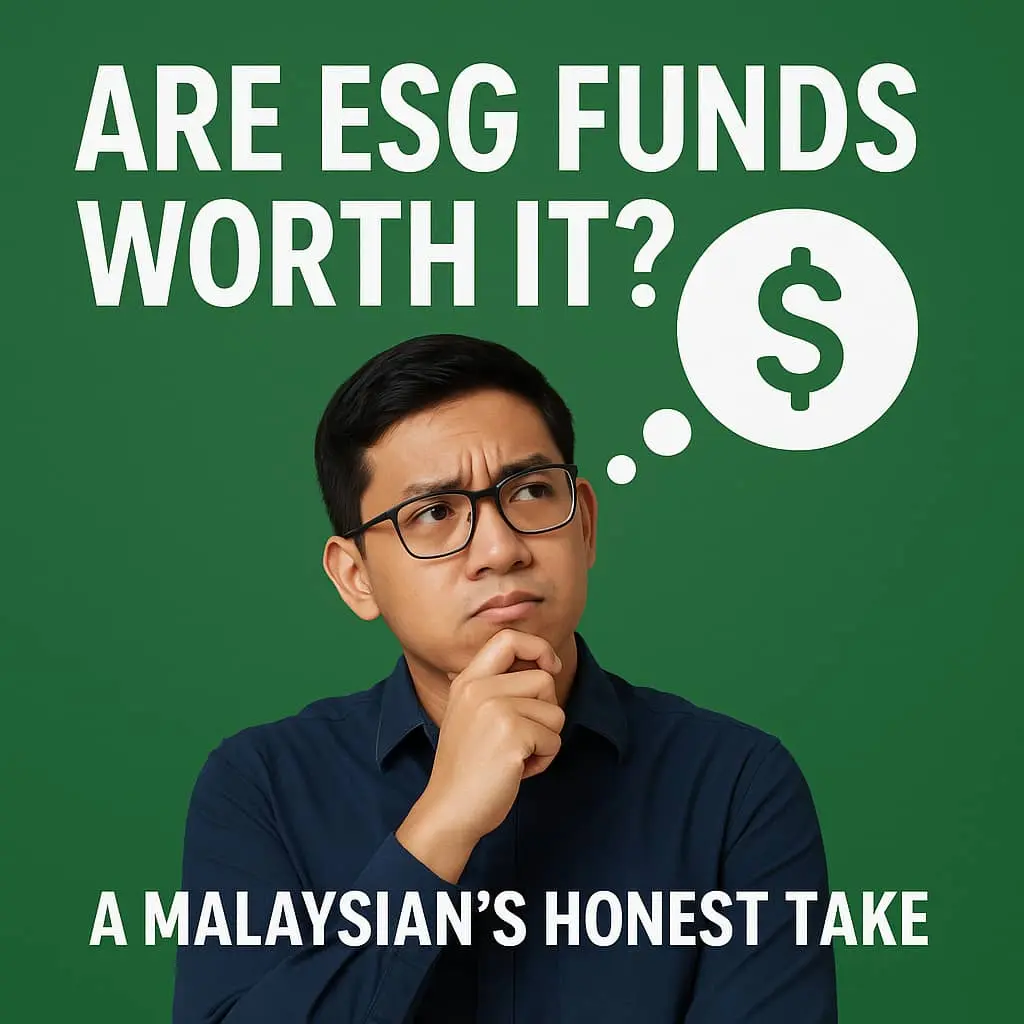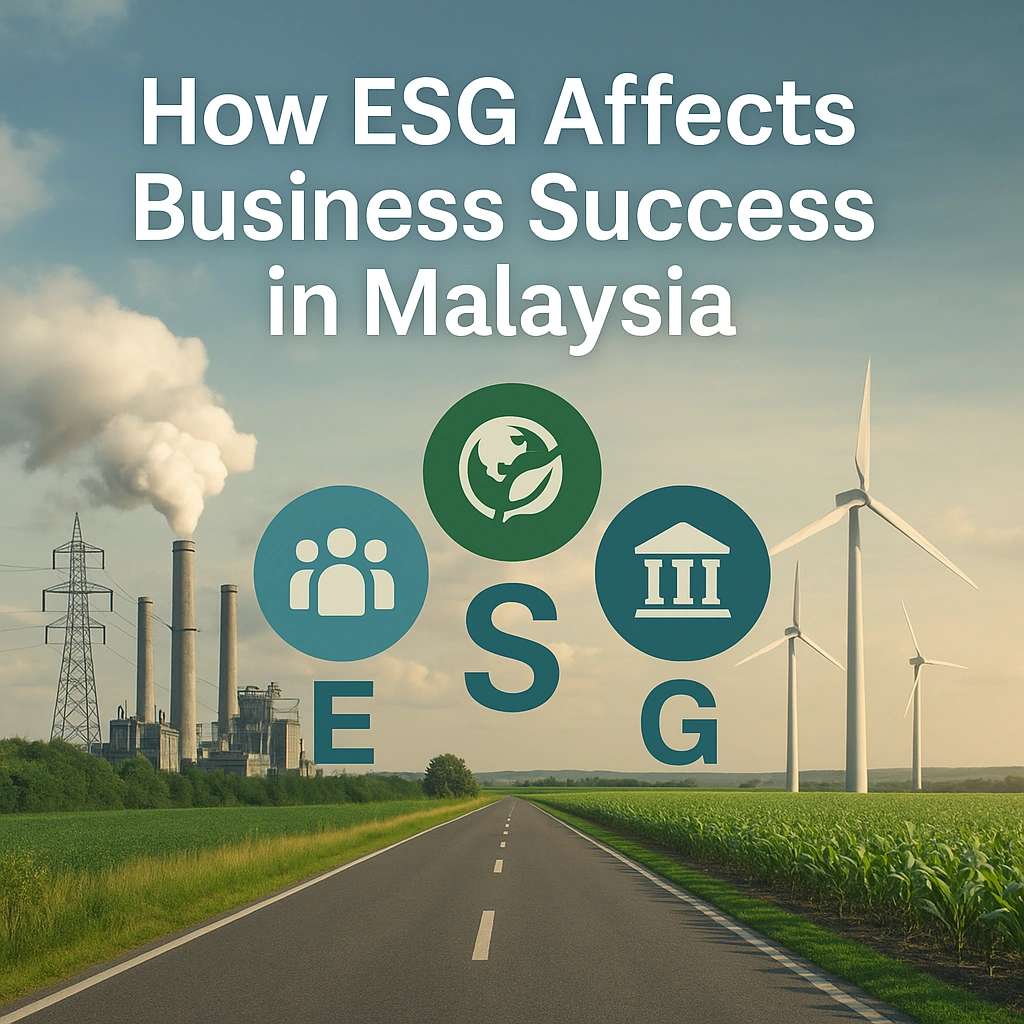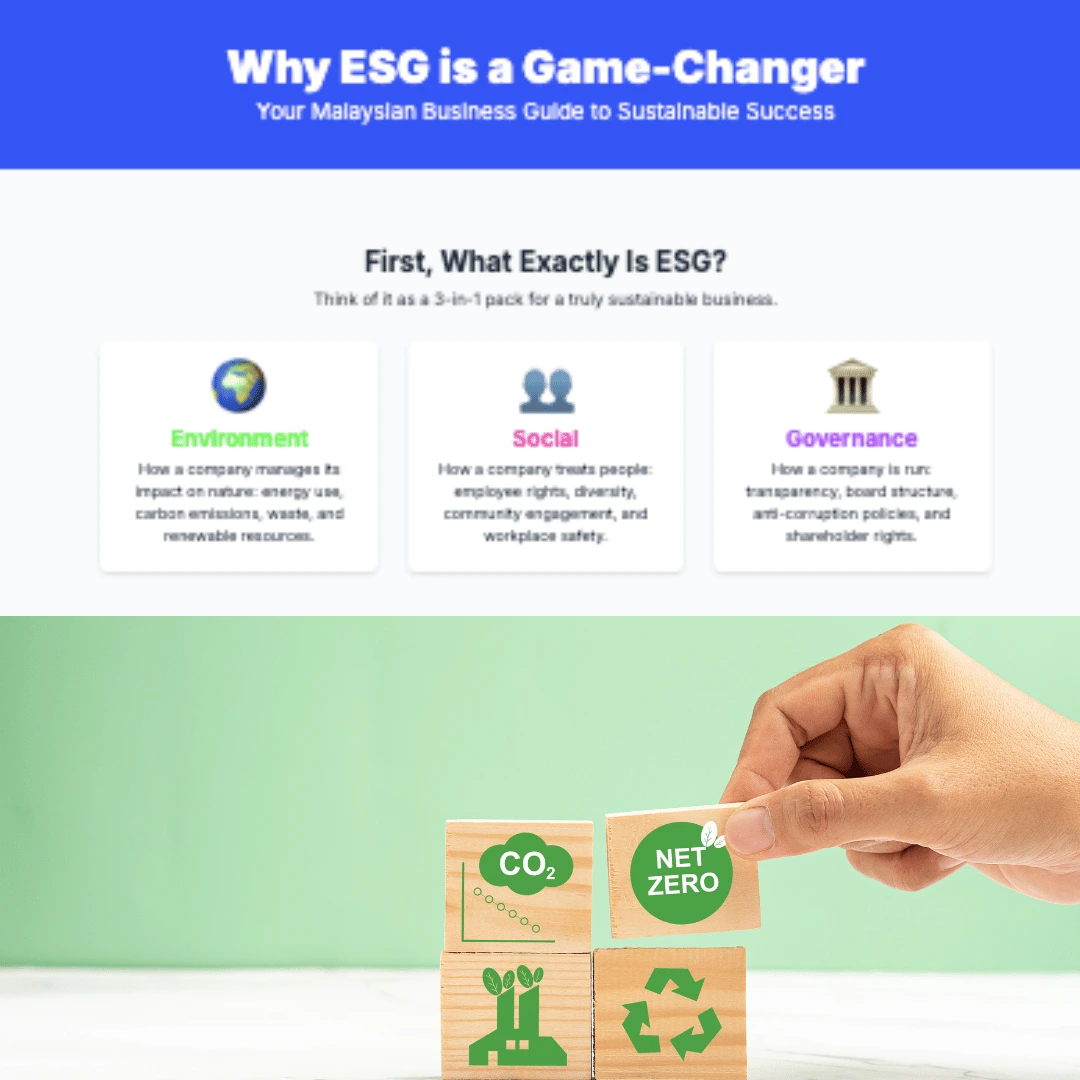Are ESG Funds Worth It? A Malaysian’s Honest Take
🌱 Introduction: The ESG Fund Buzz
If you’ve been hanging around investment circles lately — whether at a kopi tiam chat, a LinkedIn scroll, or even during your evening news — you’ve probably heard of ESG funds. They’re marketed as the future of investing: funds that combine profits with purpose by considering Environmental, Social, and Governance (ESG) factors.
But let’s get straight to the point: Are ESG funds worth it?
That’s the question many Malaysians are asking. Should you park your money there, or is this just another “hot trend” like durian bubble tea (shiok for a while, but not sustainable)?
In this article, I’ll break it down in plain Malaysian-style English — no heavy Wall Street jargon, just practical insights.
🤔 First Things First: What Exactly Are ESG Funds?
An ESG fund is basically a unit trust or ETF (exchange-traded fund) that invests in companies screened for good ESG practices.
- E = Environmental: Does the company reduce carbon emissions? Are they into renewable energy or still polluting rivers?
- S = Social: Do they treat workers fairly? Provide safe working conditions?
- G = Governance: Are they transparent? Do they avoid corruption?
Instead of just chasing returns, ESG funds try to balance profit with responsibility.
📌 Why Malaysians Are Suddenly Interested
Here’s why “are ESG funds worth it?” is such a hot question here:
- Government push: Bursa Malaysia is making sustainability reporting mandatory for PLCs. That means more companies are ESG-compliant, giving fund managers more options.
- Investor pressure: Global investors demand ESG practices. Even Malaysia’s big GLCs (like Petronas, Sime Darby, Tenaga) are under pressure to clean up.
- Consumer trend: Young Malaysians (Gen Z, Millennials) prefer brands that are green, fair, and transparent. Funds that invest in such companies appeal to this generation.
- Product availability: CIMB, Maybank, Kenanga, and even EPF offer ESG-related funds now.
💡 Are ESG Funds Worth It? Let’s Look at the Pros
1. Better Long-Term Resilience
Companies with strong ESG practices are often less risky. Think about it:
- If a company dumps waste illegally, it risks lawsuits, fines, or reputational damage.
- If a company mistreats workers, it risks boycotts and supply-chain disruptions.
By avoiding such “dirty” companies, ESG funds aim for more stable, long-term growth.
2. Attracting Global Investors
ESG companies often enjoy higher valuations because investors see them as future-proof. In Malaysia, companies in the FTSE4Good Bursa Malaysia Index (ESG-compliant PLCs) usually trade at higher multiples.
When your fund invests in these companies, you indirectly benefit from this premium.
3. Alignment with Global Mega Trends
Renewable energy, electric vehicles, sustainable palm oil, waste-to-energy… these aren’t just buzzwords. They are massive growth industries. ESG funds often get first dibs in these future-ready sectors.
4. Feel-Good Factor
This one is personal. Some investors want their money to “do good” while growing. By investing in ESG funds, you know your ringgit supports sustainable, ethical businesses.
⚠️ But Let’s Be Real: The Cons
Are ESG funds worth it? Well… here’s the flip side.
1. Performance May Lag in the Short Term
- Not all ESG funds outperform.
- In fact, some restrict themselves too much by avoiding high-return sectors like oil & gas or tobacco.
- In Malaysia, oil & gas still contributes heavily to GDP — skipping them may limit returns.
2. Greenwashing Risk
Some funds slap the “ESG” label for marketing but don’t genuinely screen companies. This is called greenwashing. You might think you’re saving the planet, but actually, your money still supports questionable companies.
3. Higher Fees
Because of extra research and screening, ESG funds sometimes charge higher management fees compared to conventional funds.
4. Lack of Track Record in Malaysia
Globally, ESG funds have shown resilience, but in Malaysia, the market is still young. There’s limited data to prove consistent outperformance.
📊 The Malaysian Landscape: Where Are ESG Funds Now?
Here’s the status on home ground:
- Bursa Malaysia’s FTSE4Good Index: Includes about 100+ PLCs that meet ESG criteria. Many Malaysian ESG funds track this index.
- EPF: Our national retirement fund has announced it will integrate ESG considerations into its investment strategies.
- Banks:
- CIMB has its Principal Global Sustainable Growth Fund.
- Maybank launched its Sustainable Technology Fund.
- Kenanga offers ESG-themed unit trusts.
- CIMB has its Principal Global Sustainable Growth Fund.
So yes, ESG funds are no longer niche — they’re mainstream.
🔎 Case Study: Sime Darby Plantation
This is a good example of why ESG matters.
- A few years ago, Sime Darby Plantation faced forced labour allegations.
- US banned imports, their stock price dropped, and brand reputation took a hit.
- After massive clean-up efforts, they regained access to markets, and their ESG ratings improved.
Lesson? Companies with poor ESG practices can lose billions overnight. Funds that avoid them are less exposed to such risks.
🧭 So, Are ESG Funds Worth It for Malaysians?
Let’s answer the main keyword directly:
👉 Yes, ESG funds can be worth it for Malaysians — but with conditions.
They’re ideal if you:
- Want long-term, steady growth (not quick gains).
- Care about sustainable industries and avoiding scandals.
- Are okay with possibly lower short-term returns in exchange for resilience.
- Choose genuine ESG funds, not greenwashed ones.
They may not be worth it if you:
- Only care about maximum short-term profit.
- Don’t mind exposure to “dirty but profitable” sectors.
- Are unwilling to pay slightly higher fees.
🛠️ Tips for Malaysians Before Investing
If you’re considering ESG funds, here’s how to start smart:
- Check the Fund Factsheet
- See what companies they invest in.
- If you see oil & gas or gambling companies, it’s probably greenwashing.
- See what companies they invest in.
- Compare Performance
- Don’t just look at 1-year returns. Check 3- or 5-year track records.
- Don’t just look at 1-year returns. Check 3- or 5-year track records.
- Look at the Benchmark
- Is the fund benchmarked against Bursa’s FTSE4Good Index? That’s a positive sign.
- Is the fund benchmarked against Bursa’s FTSE4Good Index? That’s a positive sign.
- Diversify
- Don’t put all your eggs into ESG funds. Mix with conventional funds to balance returns.
- Don’t put all your eggs into ESG funds. Mix with conventional funds to balance returns.
- Ask Your Agent / Bank
- Don’t be shy to ask: “How do you screen ESG companies?” A serious fund will have clear answers.
- Don’t be shy to ask: “How do you screen ESG companies?” A serious fund will have clear answers.
🚀 Future Outlook: Why ESG Will Only Grow
Globally, ESG is not a trend — it’s the new normal.
- EU has the Green Deal.
- US investors are pushing for ESG disclosures.
- Malaysia has its i-ESG Framework and National Energy Transition Roadmap.
As regulations tighten, ESG funds will become stronger. Early adopters may reap the benefits when the market matures.
✅ Conclusion: The Malaysian Verdict
So, are ESG funds worth it?
- For the average Malaysian investor, yes — if you believe in long-term resilience, sustainability, and future-ready industries.
- They’re not a quick path to riches, but they’re a solid path to stable, responsible growth.
- Just be careful of greenwashing and always do your homework before investing.
At the end of the day, investing is personal. If you want your money to grow AND make a positive impact — ESG funds may be your best bet.
If you only care about short-term profits — maybe stick with conventional funds.
Final Call-to-Action
💬 Thinking of starting with ESG funds in Malaysia? Always read the fine print, compare options, and align it with your long-term goals.
Because at the end of the day, it’s not just about “Are ESG funds worth it?” but also… “Are they worth it for YOU?”



